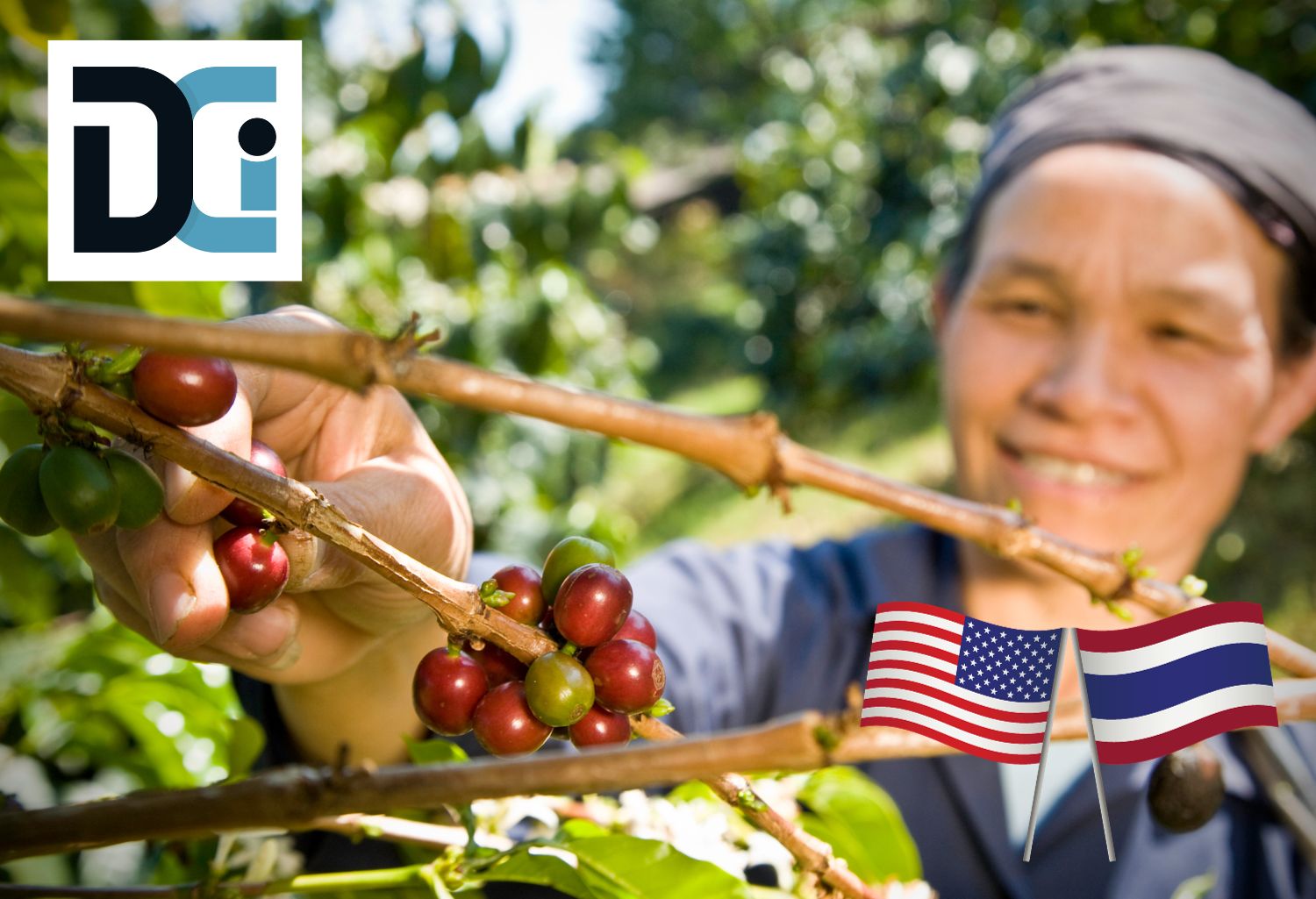In the dynamic world of international trade, where businesses thrive on cross-border transactions, the exchange of agricultural products between the United States and Thailand holds a prominent place. This thesis delves into how Debt Collectors International (DCI) can significantly safeguard the value of a B2B company’s Accounts Receivable Portfolio when dealing with bad debts in the international corporate marketplace. Our focus here is on the agricultural sector, including the trade of grains, fruits, and vegetables, and how DCI’s efficient debt recovery system enables companies to manage outstanding debts effectively, allowing them to concentrate on their core business activities.
The Growing Significance of U.S.A.-Thailand Trade
International trade between the United States and Thailand has become an integral part of the B2B sector, fostering economic growth through the exchange of goods. As the global marketplace evolves, Thailand’s agricultural sector plays a pivotal role in this bilateral trade relationship.
DCI’s Role in U.S.A.-Thailand Agricultural Trade
In this thriving landscape of agricultural trade, DCI emerges as the number one choice of collection agencies. We offer tailored debt recovery solutions, leveraging our expertise to ensure that companies involved in agricultural product trade can focus on their core operations without being burdened by unresolved debts.
Subindustries within U.S.A.-Thailand Agricultural Trade
- Grains and Cereals
The trade of grains and cereals is a substantial part of U.S.A.-Thailand agricultural commerce. DCI provides essential debt recovery services to companies engaged in this subindustry, safeguarding their financial interests.
- Fruits and Vegetables
The exchange of fruits and vegetables between the U.S.A. and Thailand contributes significantly to international trade. DCI’s debt collection services support businesses in this subsector by efficiently recovering outstanding debts.
- Dairy Products
Dairy products, including milk and cheese, are key components of agricultural trade. DCI ensures the financial stability of businesses within this subindustry through effective debt recovery solutions.
- Livestock and Poultry
Livestock and poultry trade is vital for the global food supply chain. DCI’s debt collection expertise extends to companies involved in this subsector, helping them manage their financial obligations.
- Agrochemicals and Farm Equipment
The agricultural sector heavily relies on agrochemicals and farm equipment. DCI’s role in debt recovery ensures that businesses in this subindustry can continue to provide essential products and services.
- Processed Food Products
Processed food products, including canned goods and frozen foods, are traded between the U.S.A. and Thailand. DCI’s debt recovery services protect the financial stability of companies in this subsector.
- Organic Farming
As organic farming gains traction, its trade between the U.S.A. and Thailand grows. DCI supports businesses involved in organic agriculture by efficiently recovering outstanding debts.
- Agricultural Packaging
Agricultural packaging plays a crucial role in preserving and transporting products. DCI’s debt collection services ensure that companies in this subindustry can continue their operations smoothly.
- Aquaculture
Aquaculture, including fish and shrimp farming, is a prominent subindustry in agricultural trade. DCI assists businesses engaged in aquaculture by recovering debts and protecting their financial stability.
- Seed and Crop Genetics
The exchange of seeds and crop genetics is essential for agricultural innovation. DCI’s debt recovery solutions cater to companies in this subsector, allowing them to focus on research and development.
Key Concerns in U.S.A.-Thailand Agricultural Trade Debt Recovery
Dealing with past-due debts in U.S.A.-Thailand agricultural trade poses unique challenges. Cultural differences, legal complexities, and language barriers can hinder effective debt resolution. DCI addresses these concerns with a streamlined debt recovery process tailored to the specific needs of this trade environment.
DCI’s Three-Phase Recovery System
Phase One
Within 24 hours of placing an account with DCI, we initiate the first of four letters to the debtor via US Mail. Our skilled team conducts skip tracing and investigations to obtain the best financial and contact information available on the debtors. We then employ various communication methods, including phone calls, emails, text messages, and faxes, to produce a resolution within the first 30 to 60 days.
Phase Two
If Phase One efforts do not yield results, we escalate the case to one of our affiliated attorneys within the debtor’s jurisdiction. The attorney drafts letters demanding payment and initiates telephone contact. If necessary, this phase sets the stage for litigation.
Phase Three
The final phase involves a recommendation based on a thorough investigation of the case and debtor’s assets. If recovery is unlikely, we recommend case closure with no fees incurred. In cases requiring litigation, clients have the option to proceed, covering upfront legal costs. If litigation fails, no fees are charged.
DCI’s Competitive Rates
DCI offers competitive and negotiable rates to cater to the diverse needs of businesses engaged in U.S.A.-Thailand agricultural trade. Our “No Recovery No Fee” policy ensures that clients only pay when successful debt recovery occurs, making our services cost-effective and client-focused.
A Strong Recommendation for DCI
In conclusion, the agricultural trade between the U.S.A. and Thailand is a vibrant sector of international commerce. However, the challenges of dealing with bad debts can hamper business growth. DCI’s unwavering commitment to protecting your financial interests and efficient debt recovery make us the ideal partner in the U.S.A.-Thailand agricultural trade. We strongly recommend businesses explore our third-party debt recovery services before pursuing costly litigation or legal action.
Contact DCI for Secure Debt Recovery
For reliable debt recovery services in U.S.A.-Thailand agricultural trade, contact Debt Collectors International at www.debtcollectorsinternational.com or call 855-930-4343.





